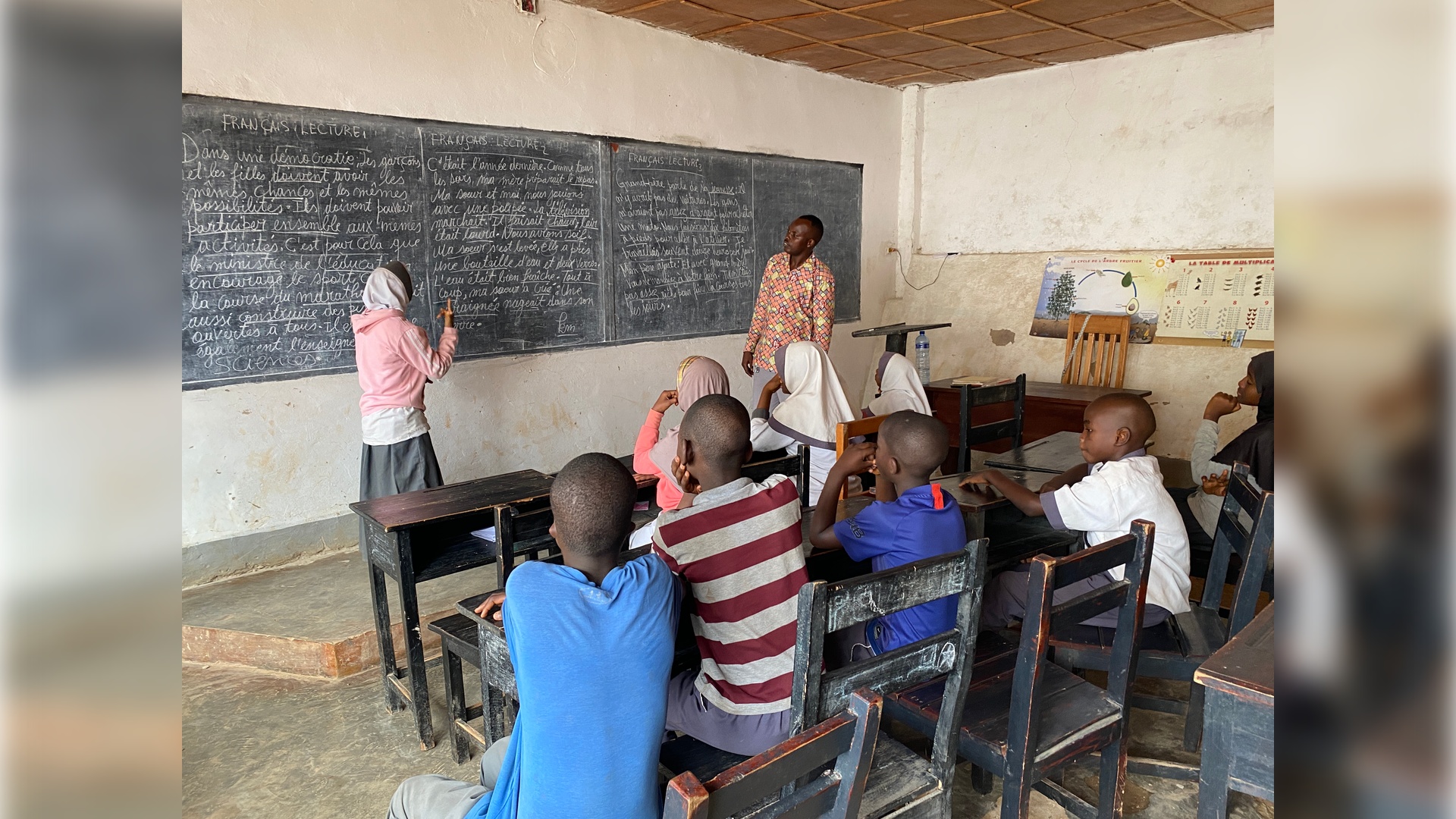
IHH Humanitarian Relief Foundation is undertaking a comprehensive sign language dictionary project in Burundi. Within the framework of this project, a sign dictionary of 850 words, including Islamic terms, is being prepared. The sign for each word is carefully selected by a commission of 10 persons under the leadership of Assoc. Prof. Dr. Mustafa Başkonak. The boarding school for the hearing-impaired has 78 students, 63 of whom are hearing-impaired and 35 of whom are orphans. While the education process continued, this school achieved a great success by ranking 7th among 123 schools in Burundi.
“We Overcome Barriers in Burundi with Sign Language Dictionary”
Faruk Erkılıç, IHH East and South Africa Unit Coordinator, stated that they have been carrying out various humanitarian aid activities, especially education for the hearing- impaired in Bujumbura, the capital of Burundi, since 2017 and said, “As IHH, we have tried to be hope for people in oppressed geographies since the day we were founded. We do not only operate in the field of humanitarian aid, we also work on the social lives of people in the regions where we work. Upon the request of Burundian hearing-impaired people, we started to work on a sign language dictionary in Bujumbura.”
In the continuation of his speech, Erkılıç mentioned that they tried to produce solutions to these problems by realizing the difficulties in the social lives of Burundian hearing-impaired people and said, “We learned that there are no equivalents for many basic religious concepts in Burundian sign language. Together with the commission established to eliminate this deficiency, we are working on a sign language dictionary of 850 words in the first stage.” Erkılıç stated that, after the completion of the work, the dictionary can be used not only in Burundi but also by hearing-impaired people and educators from Democratic Congo and Rwanda, which have similar languages, and that these studies will set an example for other African countries.

A hand reaching out from thousands of kilometers
Coordinator of the sign language dictionary project, Assoc. Prof. Dr. Mustafa Başkonak, a Faculty Member of the Faculty of Theology in Karamanoğlu Mehmet Bey University, stated that they had done the same work in Türkiye 14 years ago and said, “14 years ago we had experienced the same process in Türkiye. The work I did at that time was the Turkish Sign Language Dictionary for Religious Concepts. And at this point, thanks to the concept dictionary we have created in Türkiye, there is no such problem left.”
Referring to the same situation in Africa, Başkonak said, “After completing our preparations, we went to Burundi. We continued our work there, and we decided to work on a dictionary of 850 words. In addition, we provide training on how to read the Qur'an in sign language at Ikra Training Center. In our training, which is currently continuing remotely, we continue to create the equivalents of concepts in sign language by meeting twice a week with our commission of 10 persons. The sign language we will create in Africa will be a hand reaching out from thousands of kilometers away.”

Başkonak continued as follows: “In a country that is experiencing difficult economic times, a work is being carried out in the field of special education that the hearing-impaired can benefit from, and the responsibility IHH has taken here is very valuable. A question may come to mind, is there not an international language in the world that such studies are being carried out? There are some practices, but they are not very common. And there is no such unity in religious terms, and it is not possible to have such a unity, because from the point of view of faith, as Christianity, Judaism and Islam, most religious concepts cannot be used interchangeably. That is why people of different religions and cultures should have a glossary of terms in line with their own traditions.”

To support the campaign
In 2019, IHH launched the Barrier-Free Africa Campaign to provide humanitarian aid in various fields to the disabled people who are among the most disadvantaged groups in Africa. Within the scope of this campaign, many aids were delivered in various regions from education to health and from health to food. Within the scope of the Barrier-Free Africa Campaign, a dictionary of sign language and religious concepts are being created for the hearing-impaired in Burundi. If you want to support this campaign, you can donate by typing AFRİKA and sending an SMS to 3072.